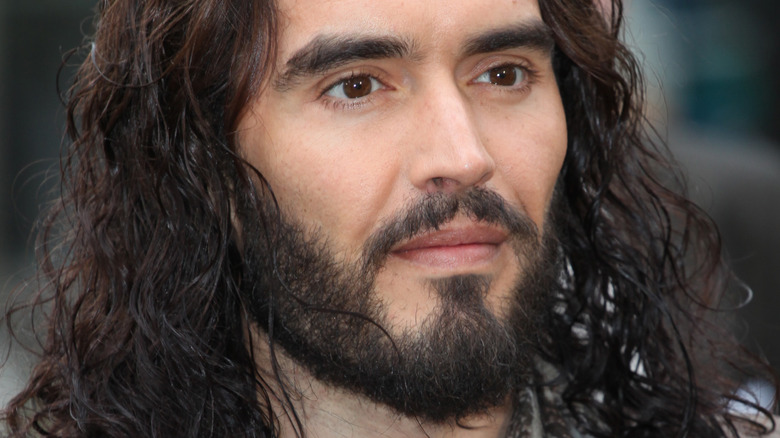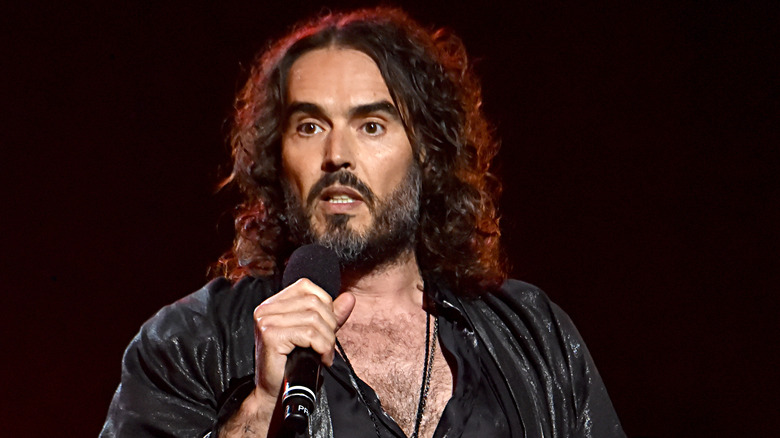Why Russell Brand Is Devastated Over His Dog
Russell Brand is reportedly "devastated" after his German Shepherd, Bear, attacked and killed a wallaby. The Sun reports that the incident occurred last week while on a walk near his home in Henley-on-Thames, England. The 46-year-old actor has long been forthcoming about his compassion for animals, and says he went vegan after watching the 2017 documentary "What the Health?" — though he's been a vegetarian since he was 14 years old (via LiveKindly.co).
In his 2007 book "My Booky Wook," Brand spoke of the special relationship he has with animals — specifically his pets. "I really craved the company of animals — the wordless simplicity of it," he wrote. "Even now, with my cat Morrissey, I cherish the moments that I'm absolutely alone with him, and the unrecorded tenderness that no one will ever know of — the simplicity of 'Oh, I'm just here, with this cat.' I don't even feed him that much any more, 'cos Lynne, the housekeeper, does that now. But he seems to want something from me that isn't food, and perhaps that thing is love."
Neighbors say 'no one is blaming' Russell Brand for the incident
According to a report from The Sun, Russell Brand was on a walk with his German Shepherd, Bear, when the dog caught a female wallaby with her baby in her pouch. Brand was able to rescue the joey, but unfortunately, Bear mauled the mother to death. The Sun also reports that local residents say that Brand is "devastated" over the attack.
"Absolutely no one is blaming Russell or his dog — it's just a horrible accident," one unnamed resident told The Sun. "In fact Russell was the hero because he managed to save the little joey." They continued: "It could have been far worse if he hadn't stepped in so quickly. He is a very caring man with animals — he has plenty of pets and they're all his babies. I understand he's devastated over what happened. It's really sad."
Though wallabies are native to Australia and New Guinea, it's theorized that Henley-on-Thames' growing population of wild wallabies is due to a local wildlife attraction, from which wallabies have escaped (via BBC).

